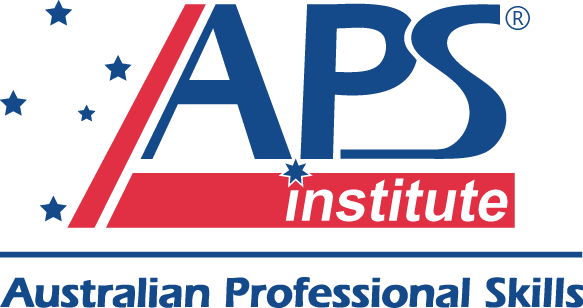
Certificate IV in Hospitality
|
|
CRICOS Course Code: 111109HVET National Code: SIT40422 |
Course Description
The Certificate IV in Hospitality offers an extensive and comprehensive skill set designed to empower individuals with a deep understanding of the hospitality industry. Students will gain proficiency in a broad range of hospitality skills while developing sound knowledge of industry practices.
Within Western Australia’s bustling hospitality scene, this qualification enables learners to work both independently and as part of a team, essential for success in leadership roles within the industry. From enhancing customer service experiences to managing conflict, students will delve into various facets of hospitality operations.
The curriculum covers diverse areas, including managing finances within a budget, coaching others in job skills, rostering staff, leading and managing people, and monitoring work operations. Additionally, students will focus on implementing and monitoring work health and safety practices, crucial for ensuring a safe and compliant workplace.
By completing the Certificate IV in Hospitality, individuals will not only expand their practical skills but also gain valuable insights into industry trends and best practices. This qualification serves as a stepping stone for those aspiring to take their hospitality careers to new heights, equipped with the expertise needed to excel in this dynamic sector.
Course Admission Requirements
International Students
- For international students, please view the entry requirements here.
Domestic Australian Students
- For Certificate level courses, students must have completed a minimum of Year 10 schooling or equivalent or to be a mature age student (20 years of age and above).
- Students need to demonstrate they have proficiency in English. If students cannot provide documented proof of their English language proficiency, they will be required to sit for a Language, Literacy and Numeracy test (LLN) before a place can be offered.
- This course is approved by the Department of Human Services (Centrelink) for student payment. Domestic students who meets the requirements of an approved course of education and study may be eligible to receive student payment from the Department.
- Additional requirements below.
Additional Requirements
- All students must be willing to apply, or already hold, a current National Police Clearance (not older than 3 months at time of enrolment). This is COMPULSORY for students/candidates to undertake workplace training. A National Police Clearance can be acquired from any Post Office for a small fee. Please allow 3 weeks for delivery. Students cannot attend work experience without this.
- All learners are required to wear in accordance with Perth Hospitality Academy Front of House Student Dress Code while attending workplace training.
Flair Bartending
at APSI Hospitality Masterclass
Unit Code |
Unit Name |
Core Units |
|
| SITHIND008 | Work effectively in hospitality service |
| SITXCCS015 | Enhance customer service experiences |
| SITXCOM010 | Manage conflict |
| SITXFIN009 | Manage finances within a budget |
| SITXHRM007 | Coach others in job skills |
| SITXHRM008 | Roster staff |
| SITXHRM009 | Lead and manage people |
| SITXMGT004 | Monitor work operations |
| SITXWHS007 | Implement and monitor work health and safety practices |
Elective Units |
|
| SITXFSA005 | Use hygienic practices for food safety |
| SITXFSA006 | Participate in safe food handling practices |
| SITHFAB021 | Provide responsible service of alcohol |
| SITHFAB022 | Clean and tidy bar areas |
| SITHFAB023 | Operate a bar |
| SITHFAB024 | Prepare and serve non-alcoholic beverages |
| SITHFAB030 | Prepare and serve cocktails |
| SITHFAB025 | Prepare and serve espresso coffee |
| SITHIND006 | Source and use information on the hospitality industry |
| SITHFAB027 | Serve food and beverage |
| SITHFAB034 | Provide table service of food and beverage |
| SITEEVT023 | Plan in-house events |

Mode of Delivery
Career Outcome
- bar supervisor or team leader
- food and beverage supervisor or team leader
- restaurant assistant manager
- catering or function center supervisor
Possible Job Titles:
- Bar Supervisor or Team Leader
- Concierge
- Duty Manager
- Food and Beverage Supervisor or Team Leader
- Forecast Analyst (Accomodation Services)
- Front Office Supervisor or Team Leader
- Housekeeping Supervisor or Team Leader
- Gaming Supervisor or Team Leader
- Reservation Analyst
- Shift Manager
Course Duration
Entry Requirements
- Minimum 15 years of age (domestic students only).
- Completion of Year 10 or high school or equivalent
- For international students and English language requirements, please view the page for entry requirements here.
Timetable
Each day of delivery follows the same structure. The first 2 hours involves trainer lead but student focussed explanation, demonstrations, presentations, questions and answers, student practice. The second 2 hours involves the trainer and student undertaking their assessment tasks on premises (as a learning tool) utilising the specialised training facilities under the required supervision of the trainer.
Students need to attend classes at APSI for a minimum of 20 contact hours per week. Class hours will be scheduled between 9:00am to 5:00pm.
Timetables/Delivery Schedules/Classes are subject to change without prior notice due to availability of training kitchens and teaching staff. Students will be given a timetable during orientation.
Assessment Methods
Assessment is based on the principles of competency based training. Performance of learners is assessed on their ability to perform the task(s) to industry standards. In order to ensure the principles of validity are upheld are variety of learning styles and a range of assessment strategies are used.
Assessment for each unit of competence will be through a combination of classroom based and work placement tasks. Classroom based assessment includes but is not limited to:
- Classroom exercises
- Assignments
- Practical demonstrations
- Group Activities
- Projects
- Verbal and/or written questions
Students are advised well in advance of assessment activities and a student may put forward for consideration any special needs they may have. The assessment criterion is documented in all modules, and workbooks. Dates of assessment are provided on the first day of class along with a timetable. Students may be assessed by a combination of continuous assessment and examinations. Continuous assessment may be based on competencies and marks, or a combination of both.
Uniform
There is a dress code for all hospitality students. Students are required to wear the APSI black polo-shirt or a white dress shirt / blouse and black trousers or skirt while attending class. Flat black non-slip covered shoes must be worn at all times. An apron will be provided by Australian Professional Skills Institute for all practical work.
All learners are required to wear in accordance with Perth Hospitality Academy Front of House Dress Code while attending workplace training.
Recognition of Prior Learning
Recognition of Prior Learning (RPL)
RPL is available to anyone who has experience working in a commercial kitchen.
RPL:
- provides an alternative pathway to achieving a qualification without course attendance
- is a consultative process between with the candidate and the assessor to determine whether the candidate has acquired the requisite learning, skills and knowledge to demonstrate that they have achieved the required learning outcomes or performance criteria of the course or qualification, for which the candidate is seeking
- identifies where appropriate additional learning experiences or training gaps are needed to achieve the course or qualification
- is the conduct of an assessment to confirm competency.
APSI has developed a process that promotes holistic and task-based assessment. It focuses on relating assessment activities to actual job tasks. The intention of this model is to streamline and simplify the process of recognising competency.
Prior to RPL, information is provided to the candidate on the assessment process. Specific advice is given to each candidate on how they can demonstrate their competence and what documentary evidence is required to support their application. Each industry has unique documents that can provide evidence of experience and competence.
The candidate is required to provide adequate information prior to, throughout and after a training and assessment experience. The assessor, in this process, needs to be fully aware of the needs of the candidate and help them identify relevant workplace personnel who can confirm the candidate’s competency.
The focus of the APSI streamlined holistic assessment process is to focus on demonstrated skills and knowledge and not to rely purely on documentary evidence as the main source of evidence.
Some examples of documentary evidence that can support the process include:
- licences such as First Aid, RSA
- CV or work history with details of job role and responsibilities
- previous qualifications from overseas and Australia
- certificates and records of results or assessments completed with other RTO’s
- photographs of work undertaken
- samples of related project work
- diaries of tasks performed
- task sheets/job sheets/logbooks
- site training records
- pay slips / employment contracts / job descriptions
- memberships of relevant professional associations
- references/letters/third party reports from previous employers/supervisors
- industry awards
- performance appraisals
Accreditation
Articulation
Employment Skills
This qualification prepares a person to select, adapt and transfer skills to a new environment and to provide technical advice and some leadership in resolution of specific problems. This would be applied across a range of roles in a variety of contexts with some complexity in the extent and choice of options available.
(Source: AQF Implementation Handbook 2007)
Location of Delivery
Disclaimer
The information contained on this website is current at the time of publishing. Australian Professional Skills Institute reserves the right to change the admission requirements, fees, location of delivery and units of competency whenever necessary. Please contact us for the most current information.


